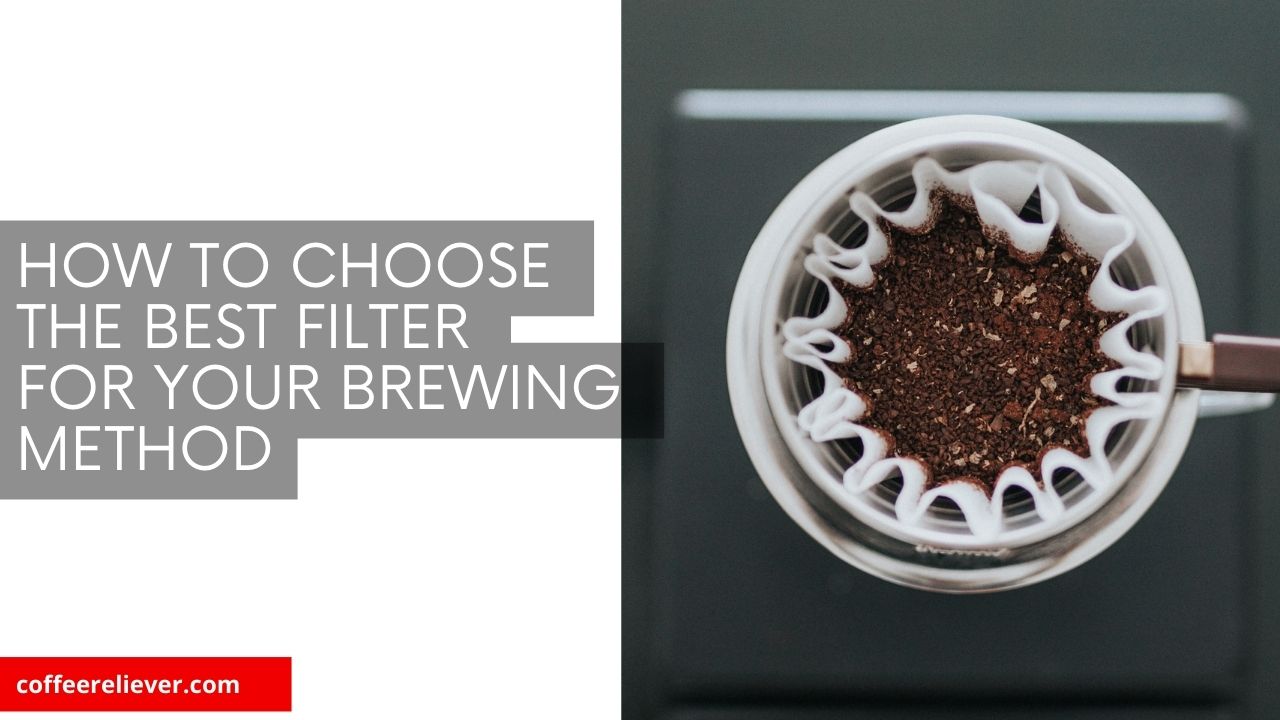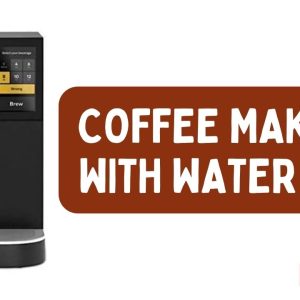In the world of coffee lovers, the Keurig K-Express has become a popular choice for its convenience and versatility. However, one aspect that often gets overlooked is the importance of using a water filter for this brewing system. In this article, we will explore the benefits of incorporating a water filter into your Keurig K-Express routine, how it can enhance the flavor and quality of your coffee, and provide some recommendations on the best water filters available for this machine.

Exploring Water Filtration Options for the Keurig K-Express: Does It Have a Built-in Water Filter?
Table of Contents
Unfortunately, the Keurig K-Express does not come equipped with a built-in water filter. Unlike some other models in the Keurig lineup, the K-Express prioritizes simplicity and affordability, resulting in the omission of certain features such as an integrated water filtration system.
Read more about : The Ultimate Guide to Choosing the Best Coffee Scoops for Your Daily Brew
Water filtration options for the Keurig K-Express
| # | Preview | Product | Rating | |
|---|---|---|---|---|
| 1 |

|
IMUSA USA GAU-18202 4 Cup Espresso/Cappuccino Maker,Black | 7,485 Reviews | See Latest Deals |
| 2 |

|
CASABREWS Espresso Machine 20 Bar, Professional Espresso Maker with Milk Frother Steam Wand, Compact... | 1,365 Reviews | See Latest Deals |
| 3 |

|
Gevi Espresso Machine, Espresso Maker with Milk Frother Steam Wand, Compact Espresso Super Automatic... | 1,826 Reviews | See Latest Deals |
While the absence of a built-in water filter might be disappointing to some, there are alternative solutions to ensure high-quality water for your Keurig K-Express brewing experience. Here are a few options:
- Keurig-compatible water filters: Keurig offers various water filter accessories that can be used with the K-Express. These filters are usually designed to fit in the water reservoir and help remove impurities, such as chlorine and sediments, from the water before it is used for brewing.
- External water filtration systems: If you prefer a more comprehensive water filtration solution, you can explore external water filtration systems. These systems, which are not specific to the Keurig brand, can provide filtered water for multiple purposes, including coffee brewing.
- Pre-filtered water: Another alternative is to use pre-filtered water, such as bottled or filtered water from a pitcher or faucet attachment. This can help ensure that the water you use for brewing is already free from impurities that could impact the taste and quality of your coffee.
Importance of water quality for coffee brewing: While the Keurig K-Express lacks a built-in water filter, it is worth emphasizing the significance of water quality in brewing coffee. Water plays a vital role in extracting the flavors from coffee grounds, and impurities in the water can negatively impact the taste and aroma of your brew. Using filtered water can enhance your coffee-drinking experience and help preserve the lifespan of your Keurig K-Express by preventing mineral build-up and scale formation.
Benefits of Using a Water Filter for Keurig K-Express
The Keurig K-Express is a popular choice for coffee lovers seeking a convenient and efficient brewing experience. While the K-Express does not come with a built-in water filter, incorporating an external water filter can offer a range of benefits that enhance the quality of your coffee. In this article, we will explore the advantages of using a water filter specifically designed for the Keurig K-Express and how it can elevate your coffee enjoyment.
Read more about : A Beginner’s Guide to Instant Coffee: Benefit, Type, Recipes and More
- Improved Taste and Aroma: Water quality plays a crucial role in the overall flavor and aroma of your coffee. By utilizing a water filter designed for the Keurig K-Express, you can effectively remove impurities such as chlorine, sediments, and unpleasant odors. These impurities can negatively impact the taste of your coffee, resulting in a dull or off-putting flavor. A water filter ensures that you start with clean, purified water, allowing the true flavors and aromas of your coffee to shine through.
- Enhanced Coffee Extraction: The Keurig K-Express relies on water to extract the desirable compounds from coffee grounds. When water contains impurities, it can hinder the extraction process and lead to subpar coffee flavor. A water filter removes contaminants and minerals that can interfere with the extraction, enabling the water to effectively extract the optimal flavors and oils from the coffee grounds. As a result, you’ll experience a richer, more satisfying cup of coffee with each brew.
- Protection Against Scale Build-up: Water impurities, particularly minerals like calcium and magnesium, can contribute to the accumulation of scale inside your coffee maker over time. Scale build-up can affect the performance and longevity of your Keurig K-Express by clogging the internal components, reducing water flow, and even causing brewing issues. By incorporating a water filter, you can significantly reduce the mineral content in the water, minimizing scale formation and extending the lifespan of your coffee maker.
- Maintenance and Cleaning Simplification: Using a water filter can make the cleaning and maintenance process of your Keurig K-Express more manageable. As the filter reduces the presence of impurities, you’ll find fewer mineral deposits and stains inside the water reservoir and brewing system. This means less frequent descaling and a simplified cleaning routine. With a cleaner and well-maintained coffee maker, you’ll enjoy a hassle-free brewing experience and spend less time on maintenance tasks.
- Cost-effectiveness: Investing in a water filter for your Keurig K-Express can be a cost-effective choice in the long run. By reducing scale build-up and the need for frequent descaling, you can extend the life of your coffee maker, ultimately saving money on repairs or replacement. Additionally, using filtered water can enhance the performance and efficiency of your Keurig K-Express, ensuring that each cup of coffee is brewed to perfection and reducing the chances of brewing issues or wastage.
How Often Should I Replace the Water Filter on My K-Express
Water filters are essential components that help remove impurities, such as chlorine, sediments, and minerals, from the water used in the brewing process. By eliminating these contaminants, water filters enhance the taste, aroma, and overall quality of your coffee. Additionally, water filters play a role in preventing scale build-up, which can affect the performance and longevity of your brewer.
| # | Preview | Product | Rating | |
|---|---|---|---|---|
| 1 |

|
IMUSA USA GAU-18202 4 Cup Espresso/Cappuccino Maker,Black | 7,485 Reviews | See Latest Deals |
| 2 |

|
CASABREWS Espresso Machine 20 Bar, Professional Espresso Maker with Milk Frother Steam Wand, Compact... | 1,365 Reviews | See Latest Deals |
| 3 |

|
Gevi Espresso Machine, Espresso Maker with Milk Frother Steam Wand, Compact Espresso Super Automatic... | 1,826 Reviews | See Latest Deals |
Read more about : Everything You Need to Know About Single Origin Coffees
Recommended Replacement Frequency
The recommended replacement frequency of the water filter in your K-Express or K-Express Essentials brewer can vary depending on usage and water conditions. However, a general guideline is to replace the water filter every two months or after brewing approximately 60 full cups of coffee. This timeframe ensures that the filter remains effective in removing impurities and maintaining optimal water quality.
| # | Preview | Product | Rating | |
|---|---|---|---|---|
| 1 |

|
Keurig K-Classic Coffee Maker K-Cup Pod, Single Serve, Programmable, 6 to 10 oz. Brew Sizes, Black | 98,660 Reviews | See Latest Deals |
| 2 |

|
Keurig K-Mini Single Serve Coffee Maker, Studio Gray, 6 to 12 oz. Brew Sizes | 94,346 Reviews | See Latest Deals |
| 3 |

|
Keurig® K-Supreme Single Serve K-Cup Pod Coffee Maker, MultiStream Technology, Gray | 18,768 Reviews | See Latest Deals |
Factors Affecting Replacement Frequency:
While the two-month guideline is a good starting point, several factors can influence the replacement frequency of the water filter:
- Water Hardness: If you live in an area with hard water, which contains higher mineral content, the water filter may need to be replaced more frequently. Hard water can lead to faster scale build-up, reducing the filter’s effectiveness over time.
- Usage Patterns: If you use your K-Express or K-Express Essentials brewer more frequently or brew larger quantities of coffee daily, the water filter may become saturated with impurities faster. In such cases, it’s advisable to monitor the filter’s condition and replace it as needed.
- Water Source: The quality of your tap water can also impact the lifespan of the water filter. If your water source has a high concentration of impurities or an unpleasant taste, it may be necessary to replace the filter more often.
Monitoring and Replacing the Water Filter:
To ensure that your K-Express or K-Express Essentials brewer consistently delivers excellent coffee, it’s important to monitor the condition of the water filter. Some brewers come with an indicator that alerts you when the filter needs replacement, while others may require manual tracking. Additionally, you can refer to the user manual or manufacturer’s recommendations for specific instructions on monitoring and replacing the water filter.













